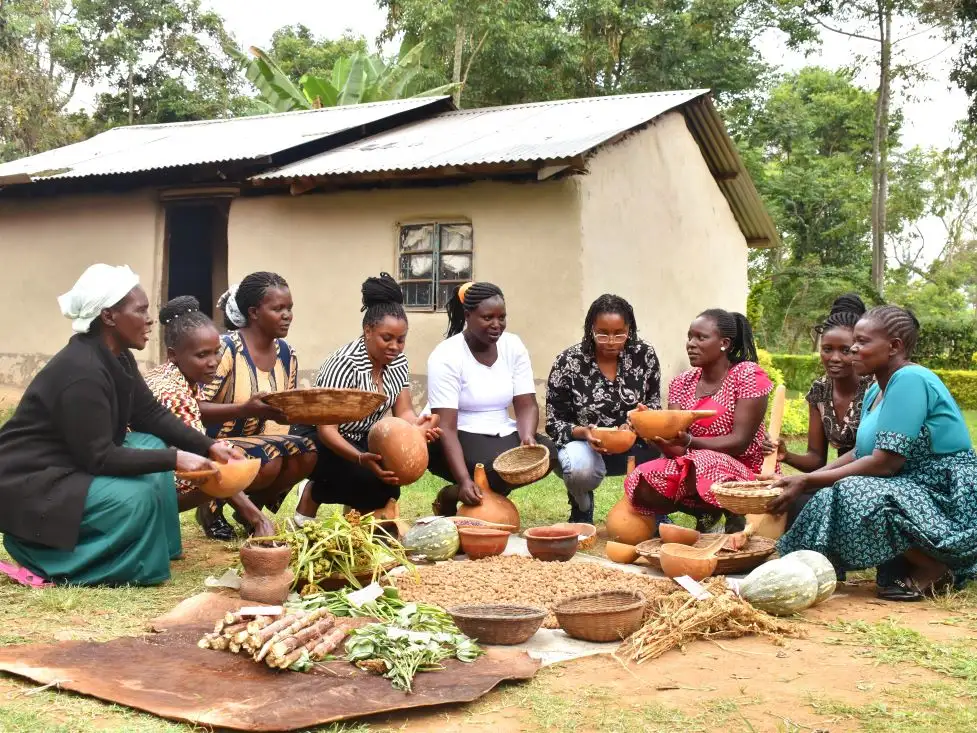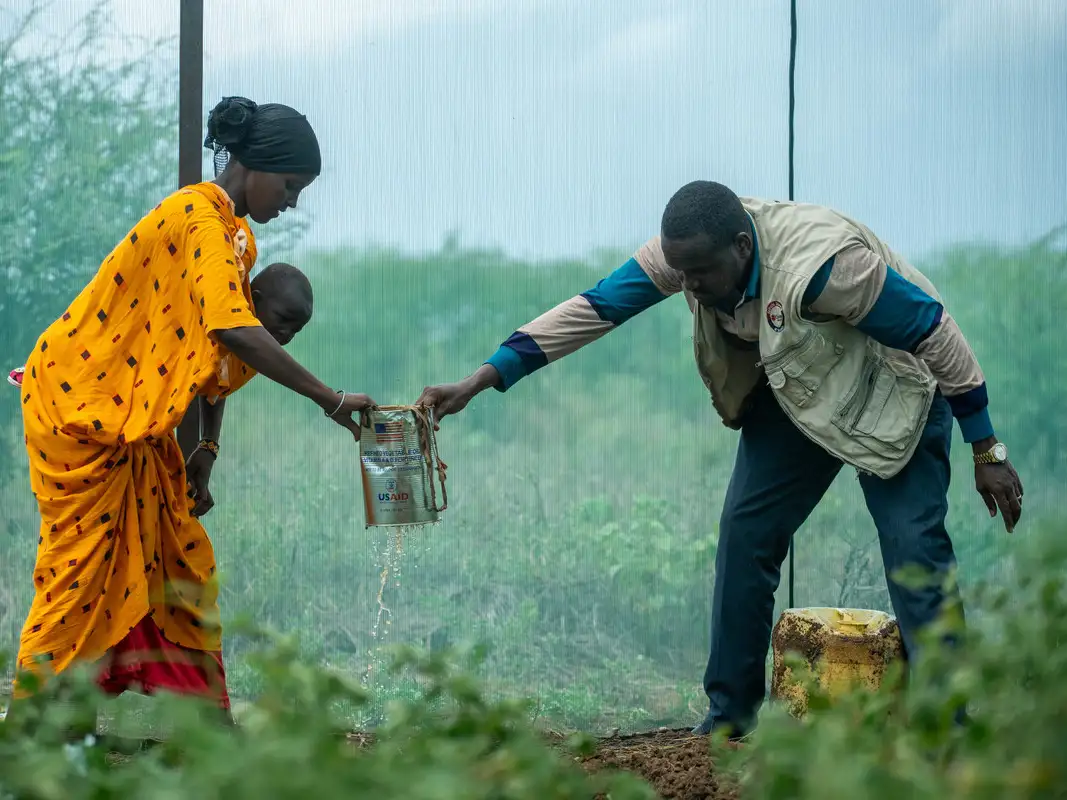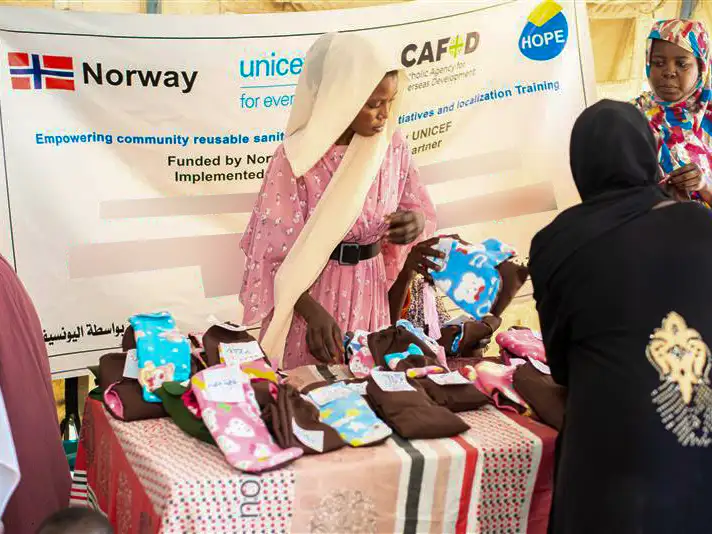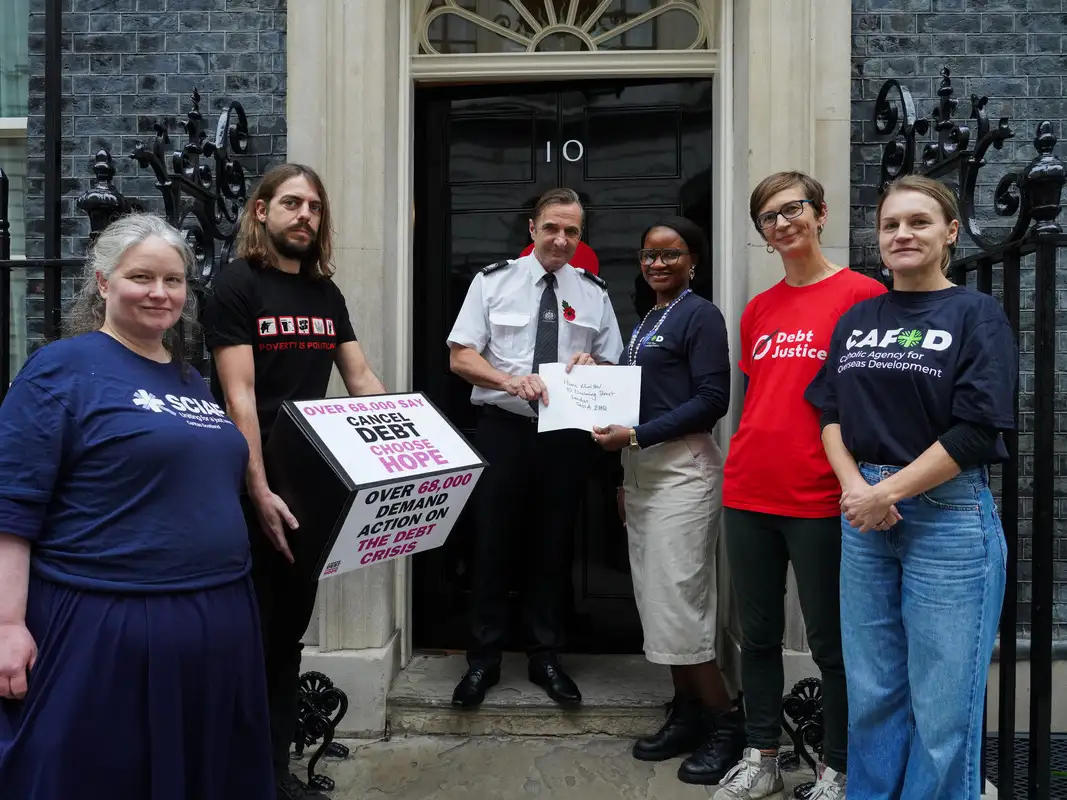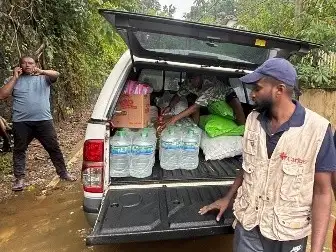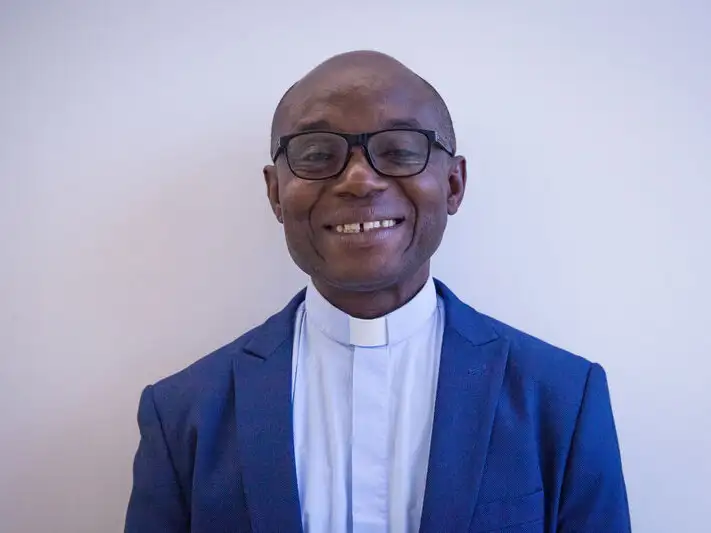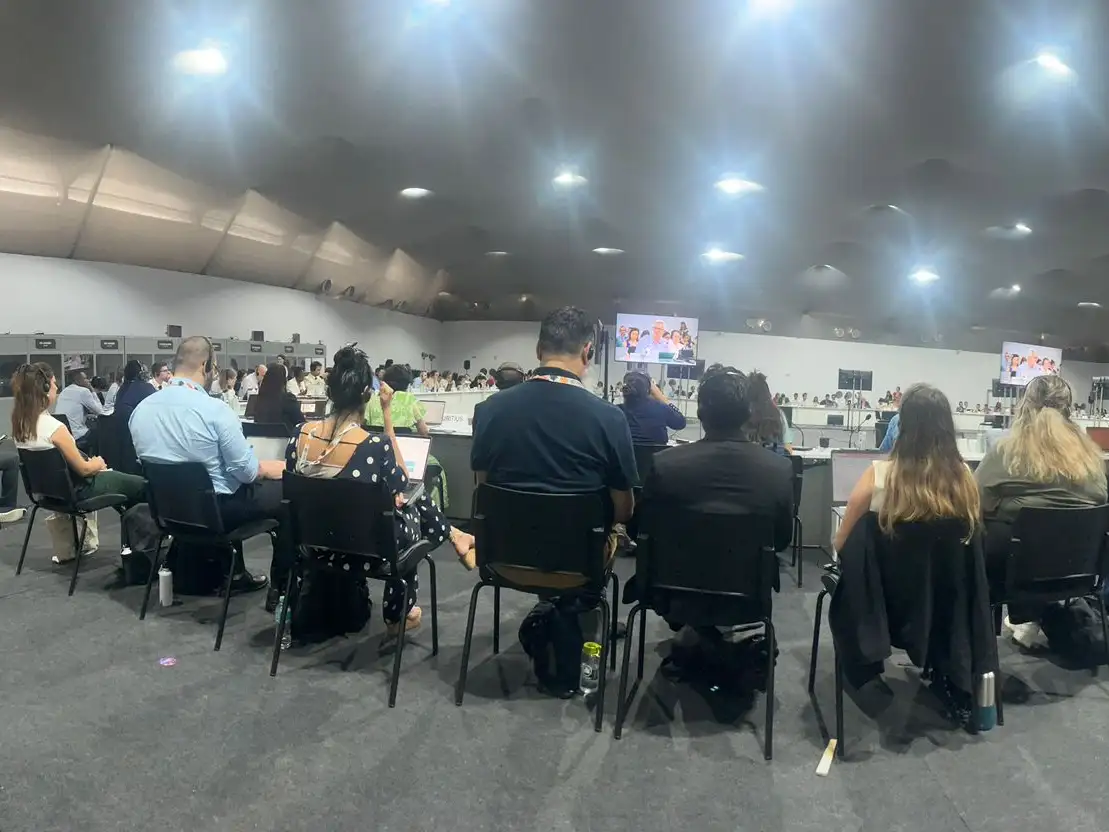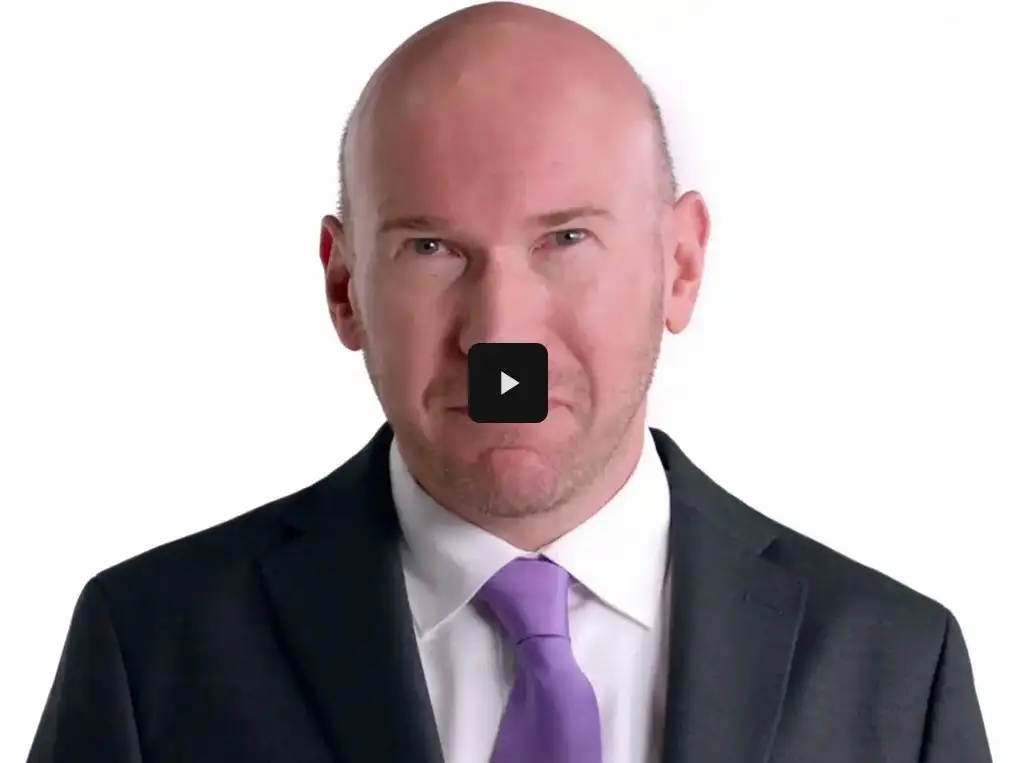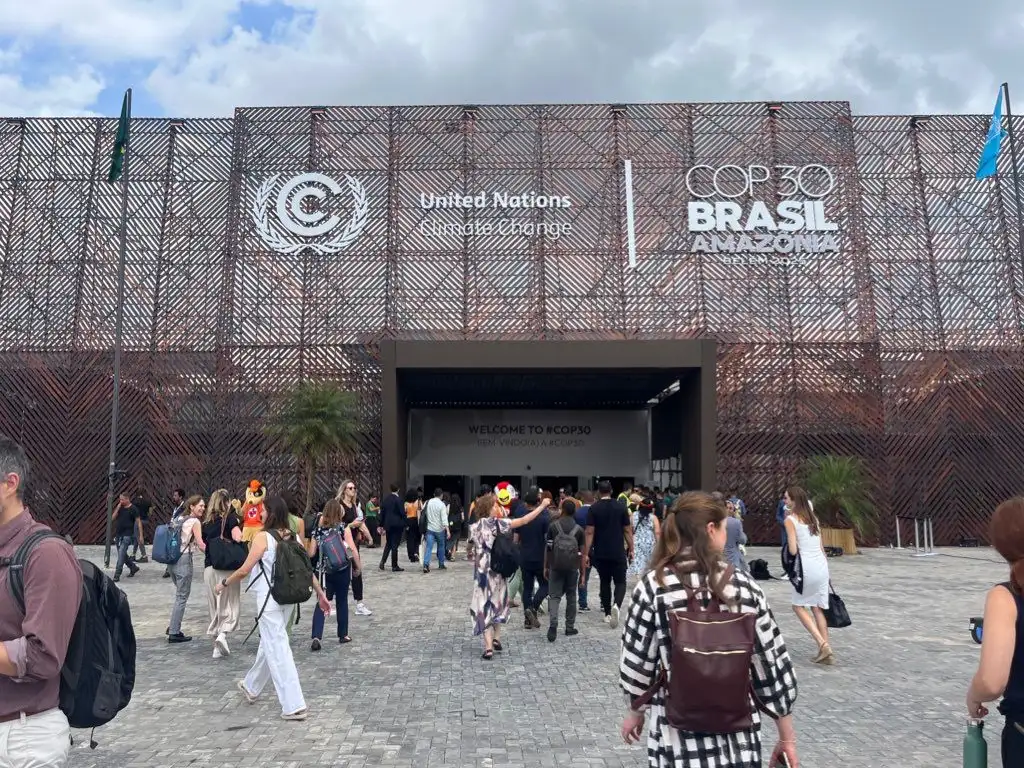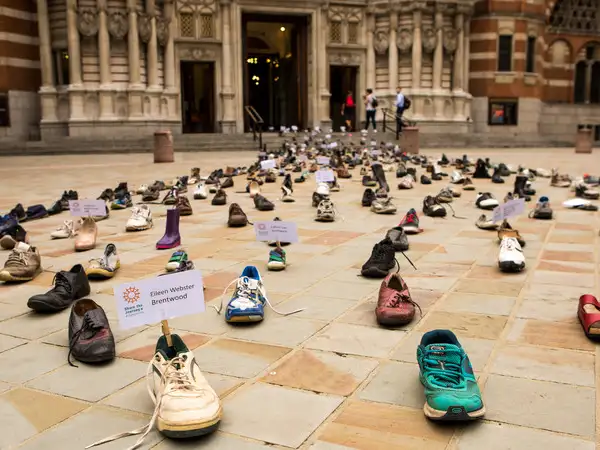

Shoes displayed outside Westminster Cathedral marked walks undertaken in support of the Global Compacts on Migration and Refugees
More than 160 countries have agreed the UN Global Compact on Migration at a conference in Marrakech, Morocco following calls from CAFOD supporters and thousands of Catholics worldwide.
The global migration pact follows the adoption of the Global Compact on Refugees by the United Nations General Assembly earlier in 2018. The two agreements set out how governments will work together to help people on the move, particularly those who have been forced from their homes by persecution or poverty.
Catholics in England and Wales and in countries around the world have campaigned for governments to agree the global compacts as part of the ‘Share the Journey’ campaign launched by Pope Francis in 2017.
What is the Global Compact for Migration?
The global compacts on migrants and refugees are the result of negotiations which started following a UN agreement in 2016 called the ‘New York Declaration’. This set out a process for countries to cooperate in dealing with the unprecedented number of displaced people globally who were migrating because of war, the changing climate or in search of a better life.
Both compacts are a step forward because they recognise that many people who are migrants, seeking asylum or have refugee status face common challenges and vulnerabilities.
The Migration Compact sets out how to assist people at all the stages of their journey – ensuring they can leave their homes without unnecessary danger, reducing the risk of exploitation and trafficking, and helping them to access basic services such as healthcare and education when they arrive in new countries.
What is the Global Compact on Refugees?
The Refugee Compact seeks to make sure that countries which receive the largest number of refugees are given support. This is something Pope Francis has called for, as the majority of displaced people are living in countries which suffer from high levels of poverty themselves.
The agreement states that we need to tackle the reasons why people are forced from their homes, including disasters resulting from climate change and damage to the environment.
The compact also notes that faith groups have an important role to play in helping refugees, including the role that the Church and other religious organisations play in preventing conflict and helping to build peace.
Global Compacts are a ‘testament to Pope’s leadership’
Graham Gordon, Head of Policy at CAFOD, said:
“It’s in everyone’s interests that countries work together to support at every stage of their journey those who have left their homes in search of a better life. This is especially important if we are to prevent people from falling into the hands of traffickers and criminal gangs.
“Pope Francis has said that our response to the needs of migrants will be a ‘test of our humanity’, so the fact that the vast majority of states are joining the Global Compact is a positive sign. Governments have responded to calls from their citizens to support migrants and refugees – including in England and Wales, where tens of thousands of Catholics have walked over 100,000 miles in solidarity with people on the move."
The Holy See, under the Pope's supervision, published guidance for governments ahead of the talks which led to the global compacts. These 'action points' were based on the support the Catholic Church is giving to refugees and migrants worldwide, including in countries such as Colombia, Nigeria and Lebanon.
Graham said:
“The Global Compact and its sister document on refugees have been a testament to the leadership shown by the Pope and the Church during negotiations. Now we need to ensure that governments put their words into action and implement their provisions.”


